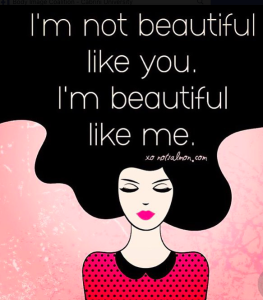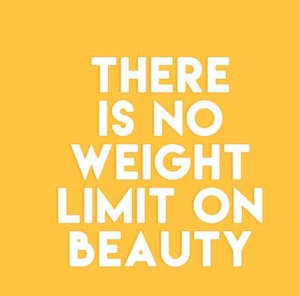According to BullyingStatistics, “Fat shaming, also referred to as body shaming, is an act in which individuals are judged negatively based on their physical appearance. Generally, men and women are fat-shamed if they appear ‘overweight’ or don’t fit the idyllic image of ‘thin and beautiful.'”
Some individuals will use any opportunity they have to shame women for each flaw and imperfection.
In recent news, celebrities like Gigi Hadid, Kendall Jenner and Kate Middleton have been body shamed for being too thin or having unusual features.
Super model Gigi Hadid has faced body shaming about her physique.
She tweeted, “Over the last few years, I’ve been properly medicated to help symptoms including those, as well as extreme fatigue, metabolism issues, body’s ability to retain heat.”
Kendall Jenner has had people criticize her feet after a recent, nude photo shoot.
The royal duchess of England is being body shamed about her fingers, as major publications question the length of Kate Middleton’s fingers.

“I am aware of the impact social media has had on women in regards to their physical appearance, because I am impacted as well,” Lauren Stohler, a senior communication and gender and body studies double major, said. “I’m not immune to seeing images of what I will never look like that is targeted to tell me the standard of beauty that I will never meet.”
Both men and women are constantly being judged on how they are suppose to look. In this society, people are all held to a high standard.
If a person does not look like a supermodel, they may be considered fat and ugly. If they do not a six pack of abs and do not go to the gym everyday, they might be a loser.
“When you go on Instagram and see the fitness models on the explore page, you can’t help but compare yourself to them,” Tyree Holmes, a junior IST major, said.“Whether you’re a girl who sees the thin models or a guy who sees the big, muscular guys.”
Holmes is one of the first males in an executive position of the body image coalition.

“My friends Jordan and Paige are exec. members and I did the fashion show for them last year,” Holmes said. “I went to a meeting this year and the club is really great, so I asked for an exec. position.”
According to Statistic Brain, “91 percent of women are unhappy with their bodies and resort to dieting, [and] 80 percent of women say the images of women in the media makes them feel insecure.” Men and women are insecure from the pressures society tthrows at them.
Calling a person a hurtful name when they are already vulnerable could lead to a person to an eating disorder.
According to the National Eating Disorders Association, “As many as 65 percent of people with eating disorders say bullying contributed to their condition.”
Social media has made it difficult for some individuals to embrace their bodies. People are concerned about how many likes and followers they are getting and feel they need to portray perfection to receive those likes and follows.
“For many people, life has become defined by the number of likes. Finstas, filters, followers– social media points to our struggle to feel accepted,” Dr. Michelle Filling-Brown, head of the English department and founder of the gender and body studies major, said. “While body shaming and bullying was part of our culture before the internet existed, social media makes it easier to do and allows for a wider audience to witness the shaming.”
Some of our very own Cabrini students have been a part of the movement to stop body shaming by being a part of Body Image Coalition and gender body studies major.
“There was a popular enrollment in women’s literature or women’s issues courses,” Dr. Seth Frechie, a professor in the English department, said. “This major is the first of its kind in the nation of emerging fields in academics.”
Filling-Brown created a major and minor for students to learn about women studies.
“I worked with the Department of English to build a concentration in women’s studies, because women’s and gender studies has always been a passion of mine,” Filling-Brown said. “My dissertation focuses on beauty culture, so I infused body studies into the concentration.”
As the major expanded, the department obtained a three-year grant from the Katherine Alexandra Foundation. Filling-Brown now has the ability to provide students with the resources to focus on body image in the major.
“We then developed a proposal for an interdisciplinary major and minor in gender and body studies, the first of its kind in the country,” Filling-Brown said.
Students have the ability to let their voices be heard and be educated on how to love their bodies.
“It’s important that people are informed about body image because it gives them the tools to figure out their own body’s imperfect existence in a culture that strives for bodily perfection,” Stohler said. “Unattainable body image standards surely take part in making people feel inadequate, which is one of the reasons why someone can develop an eating disorder.”



